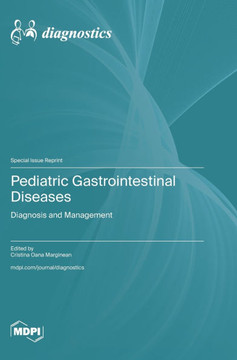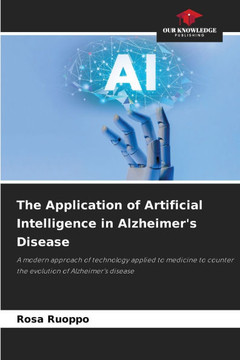
MDPI AG
Artificial Intelligence in Gastrointestinal Disease : Diagnosis and Management
Product Code:
9783725806539
ISBN13:
9783725806539
Condition:
New
$106.97
$94.65
Sale 12%

Artificial Intelligence in Gastrointestinal Disease : Diagnosis and Management
$106.97
$94.65
Sale 12%
Gastrointestinal disease (GID), the disease of the gastrointestinal tract, is one of the main contributors to disease burden around the world. GID causes 8 million deaths around the world per year and cost 120 billion dollars in the United States in 2018 alone. Simultaneously, the notion of artificial intelligence (AI) has gained great attention on a global level. Machine learning, a branch of AI extracting knowledge from large amounts of data, includes several common approaches, and a popular machine learning approach is the use of an artificial neural network (ANN), a group of neurons (information units) that are networked based on weights. An ANN normally has one input layer, one, two or three intermediate layers, and one output layer. A deep neural network (or deep learning) is an artificial neural network with a large number of intermediate layers, e.g., 5, 10 or even 1000. This Special Issue demonstrates the effectiveness and popularity of deep learning as a cutting-edge approach to the diagnosis and management of GID. This Special Issue covers a wide range of important topics including the classification, detection and segmentation of acute diverticulitis, colorectal cancer, gastric cancer, fatty liver, fecal material, inflammatory bowel disease, living-donor liver transplantation, neuroendocrine tumor and pancreatic cystic lesions. The Special Issue addresses the utility of explainable AI and large language models as well. In conclusion, this reprint will serve as an indispensable collection of original studies on the AI-based diagnosis and management of GID.
| Author: Eun-Sun Kim, Kwang-Sig Lee |
| Publisher: Mdpi AG |
| Publication Date: Apr 02, 2024 |
| Number of Pages: NA pages |
| Language: English |
| Binding: Hardcover |
| ISBN-10: 3725806535 |
| ISBN-13: 9783725806539 |





